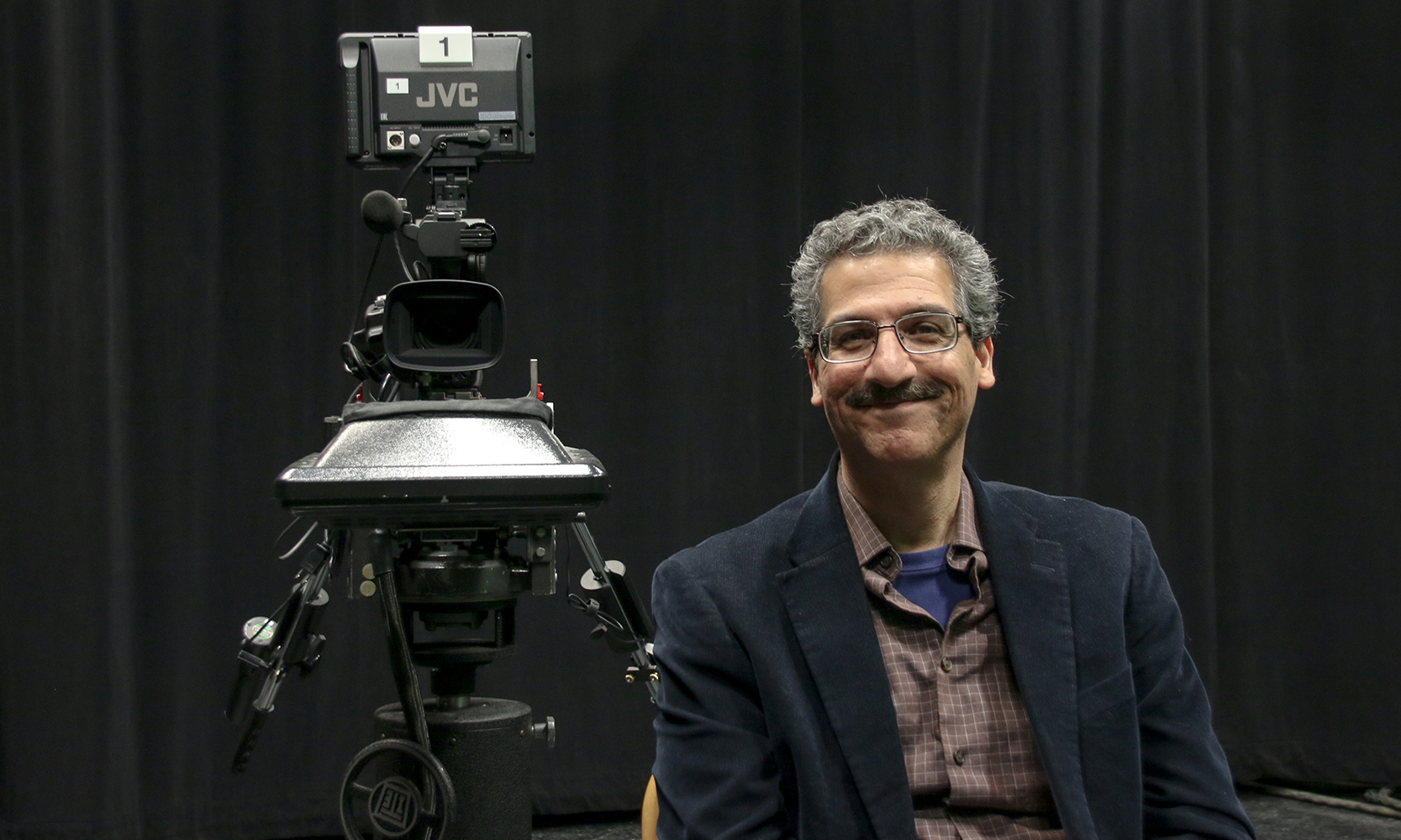History Professor Camron Amin is creating a time capsule. But instead of coins or headlines, he’s assembling something even more important—a collection of personal stories. Specifically, the experiences of Iranian Americans.
Amin started the Michigan Iranian-American Oral History Project, which digitally documents the stories of Iranian-Americans who reside in Michigan or for whom Michigan was an essential part of their life experience.
For the project—which is creating visual and audio recordings—Amin received a $25,000 2016-2017 Michigan Humanities Council Heritage Grant (MHCHG) and additional funding from the Office of Research and Sponsored Programs. The MHCHG grant also supported public lectures by experts on the Iranian Diaspora, recordings of those presentations are on the Michigan Iranian-American Oral History Project website.
“Seeing and hearing people share their experiences gives an insight into a time in a way that other sources can’t. If Roman citizens circa 200 AD had something like this, do you think I’d use those in class? You bet I would,” he said. “You hear how someone speaks, their dialect, emotion. First-person accounts usually give insights into the everyday life details that are lost to time, but this goes further—it puts a face and voice to that, which adds a very relatable and real element for someone who wants to know more about Iranian American experiences now or in the future.”
Amin said this project is set up to easily allow members of the Iranian-American community in Michigan to share their oral histories digitally—in their homes or in the University of Michigan-Dearborn JASS Studio with an interviewer like Amin, or they can upload their own recording online. In addition to Amin, UM-Dearborn Research Assistant Tina Nelson, Campus Media Services Senior Television Engineer Greg Taylor, and students Deanna Burrows and Muhammad Ali Mojaradi are involved with the project.
Excerpts from the interviews will be on the Mardigian Library’s website, and the recording in its entirety and full transcripts will be housed at UM-Ann Arbor’s Bentley Historical Library.
Amin said initiating this oral history project is a way to show how the history of Iranian-Americans in Michigan connects with stories of other Iranian-Americans and the Iranian diaspora around the world. According to the Ministry of Interior of Iran, the United States has the highest number of Iranians outside the country. Amin said that’s because many Iranian Americans came to the U.S. for educational opportunities or to flee because of changes spurred from the 1979 Iranian Revolution.
“Ultimately, information gleaned will help people understand human culture and immigration in a way that news headlines cannot,” said Amin, noting that people who take part in the project are able to have a say in how publically their recordings are shared at this time. “And we aren’t just asking for stories of older people. I would like to speak with younger Iranian Americans too, and possibly have the project follow up with them in 10 years.”
Amin said it’s common for people—including Amin’s father, Mohammad “Moe” Amin, who is Iranian American and Amin’s first oral history interview—to not see their experiences as extraordinary enough to document. But he said there are researchers, educators, organizations and family members who will gain so much from these cultural histories, both now and in the future.
“When it is you and your everyday life, you may not realize how much you’ve experienced or how much you have accomplished. And people who see these in the future will find your story important simply because it exists,” he said. “This is a way to give a window into your world.”




